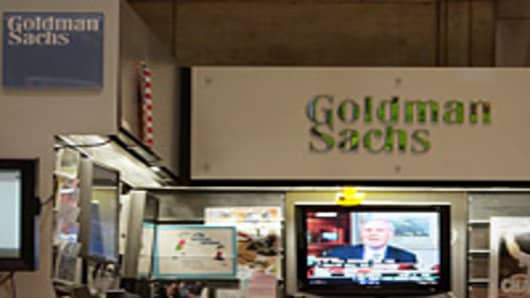And critics fault Rubin for not pushing for regulation of over-the-counter derivatives, one of the complex financial instruments that helped trigger the 2008 financial crisis.
In April, before a government commission investigating the crisis, Rubin was asked if the lack of political will to regulate derivatives was related to pressure from the financial services industry. Rubin replied, “I think there were very strongly held views in the financial services industry in opposition to regulation. And I think they were not surmountable at that point.”
In Washington, political will—or lack thereof—is more often than not directly tied to money. And when it comes to Goldman Sachs, there is always plenty of that to go around.
“Their PAC and their executives,” says Nick Nyhart, head of Public Campaign, a campaign finance reform group, “have spent $32 million on campaign contributions in the past 20 years. They are the top giver within the financial sector to candidates and incumbents in Congress.”
But in the current election year, candidates are less eager to take Goldman’s money. Any association with Goldman Sachs was seen as such a liability that almost two dozen candidates refused Goldman campaign contributions or donated them to charity.
Will Goldman lose clout in Washington, D.C. as a result of its current troubles?
“If I had to guess,” says Michael Greenberger, “the answer to that is ‘yes.’ They are going to lose clout. I think they’ve lost their brand. Their brand was phenomenal. I think their brand is now a liability rather than an asset.”
Watch "Goldman Sachs: Power and Peril," hosted by David Faber, Wednesday, October 6 at 9pm ET. Faber reveals how Goldman Sachs benefited from some of its most controversial deals before, during and after the economic collapse. He describes how Goldman, throughout its history, has fought back from adversity with innovation and fierce competitiveness. Faber also examines the future of Goldman Sachs, asking whether the bank can maintain its dominant position atop the world of finance.



